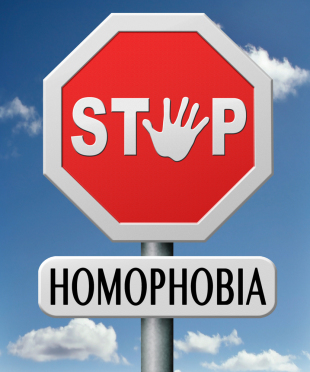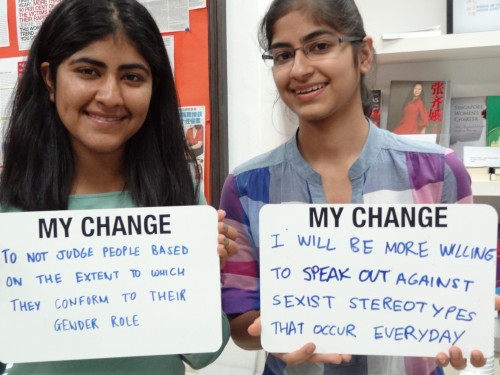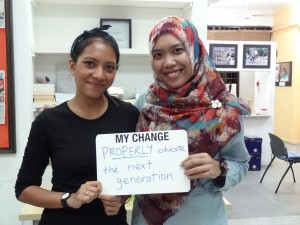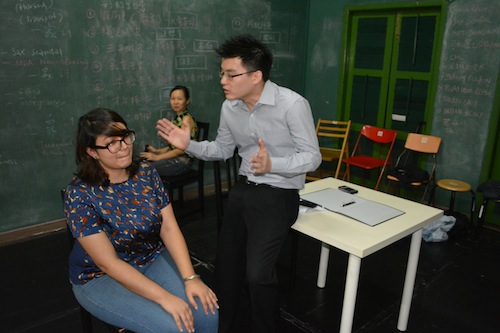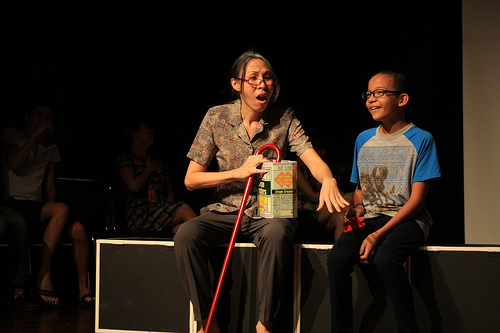by Ian Mak, Change Maker
[two_third]
 Much has been said about the Health Promotion Board’s decision to release an FAQ (frequently asked questions) about homosexuality, which was aimed at providing information for parents with homosexual children and address the issue of discrimination based on sexual orientation.
Much has been said about the Health Promotion Board’s decision to release an FAQ (frequently asked questions) about homosexuality, which was aimed at providing information for parents with homosexual children and address the issue of discrimination based on sexual orientation.
The Lesbian, Gay, Bisexual and Transgender (LGBT) community in Singapore commended HPB’s move, labeling it an important first step towards helping homosexuals struggling with their sexual identity. Others, generally self-proclaimed ‘conservatives’, led by Pastor Lawrence Khong of Faith Community Baptist Church, were not so supportive. They claimed that the tone adopted by HPB was supportive of homosexuality in general and how it fundamentally damaged the moral fabric of society.
It is good to have such discourse and a wide spectrum of views. It shows that we are maturing as a society. However, the crux of the issue is for us to recognise that the LGBT community and in particular, homosexual youths, are not being accepted in our local communities. They are often discriminated in society and bear the brunt of much homophobia-fuelled violence.
Violence against homosexual youth is a result of the lack of sufficient education, information and inclusivity. From a young age, traditional norms of gender and sexuality are perpetuated via conservative sexuality education programmes in schools. Homosexuality is sneered at as an illegitimate lifestyle choice and a socially taboo topic. This creates an atmosphere of fear and judgment in schools, where homosexuals are afraid of being themselves. The failure of the education system to develop a culture of acceptance is reflected in the horrific gay bashing endured by Theo Chen, a 12-year-old student in SJI International Elementary School.
 Worse still, families with deeply entrenched conservative values regard having homosexual children as a source of shame. It is commonplace to find openly homosexual children cut off from families who have rejected them based on their sexual orientation. Consider the case of Sham, who has been recently featured on the facebook page, ‘The People of Singapore’. A lesbian, she was forced to leave home at the age of 16. Her girlfriend has also been shunned by her family, who told Sham she should be gang raped to ‘fix her’. The experiences of Sham are very much indicative of a wider culture of intolerance and violence towards the LGBT community.
Worse still, families with deeply entrenched conservative values regard having homosexual children as a source of shame. It is commonplace to find openly homosexual children cut off from families who have rejected them based on their sexual orientation. Consider the case of Sham, who has been recently featured on the facebook page, ‘The People of Singapore’. A lesbian, she was forced to leave home at the age of 16. Her girlfriend has also been shunned by her family, who told Sham she should be gang raped to ‘fix her’. The experiences of Sham are very much indicative of a wider culture of intolerance and violence towards the LGBT community.
As a result, homosexual youths find it difficult to come to grips with their sexuality, and start to distrust themselves and their experiences. Bereft of support from friends, family and the government, they are often alienated and bear the brunt of violence from people influenced by homophobic rhetoric. Is it any wonder, then, that the Suicide Prevention Resource Centre estimates that between 30 to 40% of LGBT youth have attempted to take their own life?
By persisting with the status quo, we are refusing to acknowledge the discrimination and persecution that homosexual youths have to endure on a daily basis. Homophobia will continue to flourish and violence against homosexual youths will continue to be an everyday reality.
We need to tackle the root of the problem- the lack of education about homosexuality that prevents a culture of inclusivity from taking root. More than that, we need to ensure that families become more accepting towards homosexual youths, so that at the very they can cling onto their family members for support and guidance.
That is why HPB’s move to publish the FAQs about homosexuality is an important first step towards ending discrimination against homosexual youths. By developing and strengthening the support systems of homosexual youths, we are sending out a clear message that they are deeply treasured and respected members of an inclusive and accepting society. More than that, we are telling society- the lawmakers, the workers and the average joe on the street- that violence against homosexual youths can never be tolerated.
However, more needs to be done. More can be done. We have the ability, as a society, to come together to reject homophobia and violence against homosexual youths. If you are a young person in a school, be a friend to those who could be struggling with their sexual orientation. More importantly, do not tolerate any homophobic sentiment amongst your peers.
“The time time for justice, the time for freedom, the time for equality is always, is always right now!” – The Great Debaters
I am willing to play my part in stopping violence against LGBT youths. Are you?
